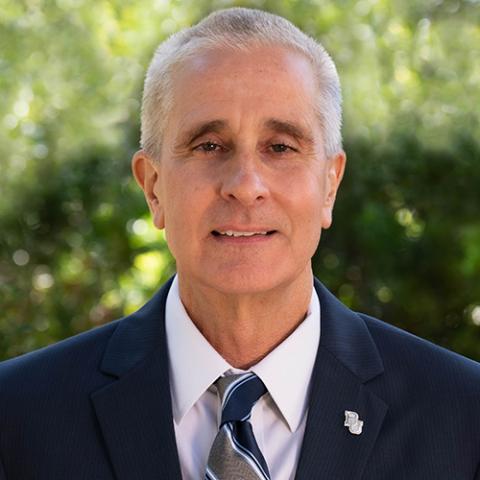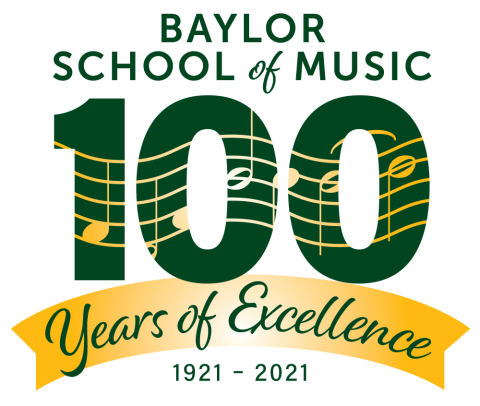About
Who We Are
Welcome to the Baylor School of Music website. Here you will find answers to many questions that will help you get to know who we are and what we do for our students. If you are interested in pursuing a degree in music as your primary major, continuing your music studies as a secondary major in performance, or participating in one of our many music groups as a minor or non-major, this site is rich in content.
The Baylor University School of Music provides transformational experiences that prepare students for careers in music. Our students thrive in a Christian environment characterized by a nurturing resident faculty, an unwavering pursuit of musical excellence, a global perspective, dedication to service, and devotion to faith. They investigate the rich musical and cultural heritage of the past, develop superior musical skills and knowledge in the present, and explore and create new modes of musical expression for the future. While preparing for future leadership roles, our students join with School of Music faculty in enhancing the quality of community life, enriching the larger culture, and making Baylor a place in which heart, mind and soul coalesce.
Baylor University's School of Music is a member of the National Association of Schools of Music and the Texas Association of Music Schools. Students who major in music enjoy small class sizes and personal attention both in and out of the classroom from faculty who are active musicians with a variety of specialties in research, composition, and performance.
Sem·per Pro Mus·i·ca
- To serve music through performing excellence, theoretical understanding, and within historical context.
- At Baylor it’s all about coming together to make music in a community devoted to faith, to understanding, and to continuous improvement.
Our Heritage
Music has been a part of Baylor from its very beginnings in 1845 under the Republic of Texas, but only since the fall of 1921 has it been administered through an independently constituted school of the university. Initially—throughout the years at Independence, Texas, and for seventeen more in Waco—the music program subsisted solely as a cultural enrichment venture. Then, in 1903, it was elevated to a degree-granting department. A decade and a half later, shortly after the end of the First World War, the Department of Music joined with the Department of Expression to form the College of Fine Arts. Finally, effective with the opening of fall classes in 1921, Baylor trustees saw fit to dissolve the newly formed College of Fine Arts and create the School of Music and Fine Arts, with the Department of Expression being transferred to the College of Arts and Sciences.
Our Future
The Semper Pro Musica Strategic Plan for the School of Music is generated by the Music Council composed of division chairs and elected members from the faculty of the School of Music. The plan is periodically reviewed, discussed, and voted on by the full faculty. The first bullet in each section indicates essential goals that attain the status of Important Achievable Goals (IAG).
Alignment with Illuminate Pillars
Pillar 1: Christian Environment
- Provide and promote a loving and caring Christian environment for all students, staff, and faculty; one of inclusivity, grounded in acceptance and civility, that respects differences and diversity, and values each person as an integral part of our campus community.
- Provide funding for students to conduct outreach projects centered on the performing arts that would aid underrepresented groups and/or youth from lower socio-economic backgrounds.
- Continue resourcing programs within the School of Music that serve the Waco community.
- Continue to support Baylor mission-centric activities by providing music for university functions (including chapel, commencement, development events, and related/similar activities.).
Pillar 2: Transformational Education
- Examine the curricula of all degree plans to ensure that they consist of artistic and academic content that effectively and efficiently fosters excellence and creates a passion for the unique transformative opportunities possible through a life in music while also seeking to increase four-year graduation rates for undergraduate majors.
- Examine the requirements for students in various ensembles/studios and how those compare or relate to one another, including ensembles that are attached to applied study and how students participate in the pool system.
- Consider creating minor programs within the BA/BM degrees in entrepreneurship, business, jazz studies, chamber music and conducting, and consider creating certificate programs in music ministry and the history of performing/visual arts.
Pillar 3: Research and Scholarship
- Increase funding for both faculty and students to develop their research toward substantive publication, presentation, or performance.
- Identify specific funding and legal/copyright support for the distribution of recordings generated by School of Music ensembles, chamber groups, and individual faculty.
- Explore means of fostering creative activity among faculty while maintaining a healthy work-life balance, through apportioning work-load credit according to School of Music strategic goals.
- Seek opportunities to forge interdisciplinary partnerships within the University and beyond in order to enhance faculty and student research and creative activity in the fine arts.
Pillar 4: Human Performance in the Arts and Athletics
- Build an endowment of $50M with emphasis given to creating naming opportunities for scholarships, programs, initiatives, instruments and spaces, and create additional opportunities for undergraduate and graduate students to perform at venues nationally and internationally.
- Bring Roxy Grove Recital Hall online so that it can livestream performances on the Internet. Upgrade Jones Hall’s livestreaming capabilities and upgrade WiFi access in all School of Music spaces.
- Examine the master schedule as it relates to the use of space. Establish policies to document room reservations for all activities.
Alignment with Illuminate Initiatives
Health
- Develop relationships across Baylor fine arts and the wider Central Texas medical community to help educate the School of Music on how all aspects of physical and mental wellbeing impact creative activity.
- Provide wellness training for all music students so that our graduates can be healthier performers and better-informed teachers in their professional and personal lives.
Human Flourishing, Leadership, and Ethics
- Develop interdisciplinary collaborations between the School of Music and other Baylor units such as the schools of Social Work and Education, the Robbins College, and the Departments of Art and Art History, Film & Digital Media, and Theatre Arts in the College of Arts & Sciences.
- Maintain and increase community outreach services for arts instruction and music-making in Central Texas. Gather information on all of these opportunities in one virtual location to improve visibility and effectiveness.
- Include a member of the School’s professional staff on Music Council to allow for greater input from the School’s support of instruction, recruiting, daily operations, and creative/research.
Passed by the full faculty of the School of Music on May 4, 2020

